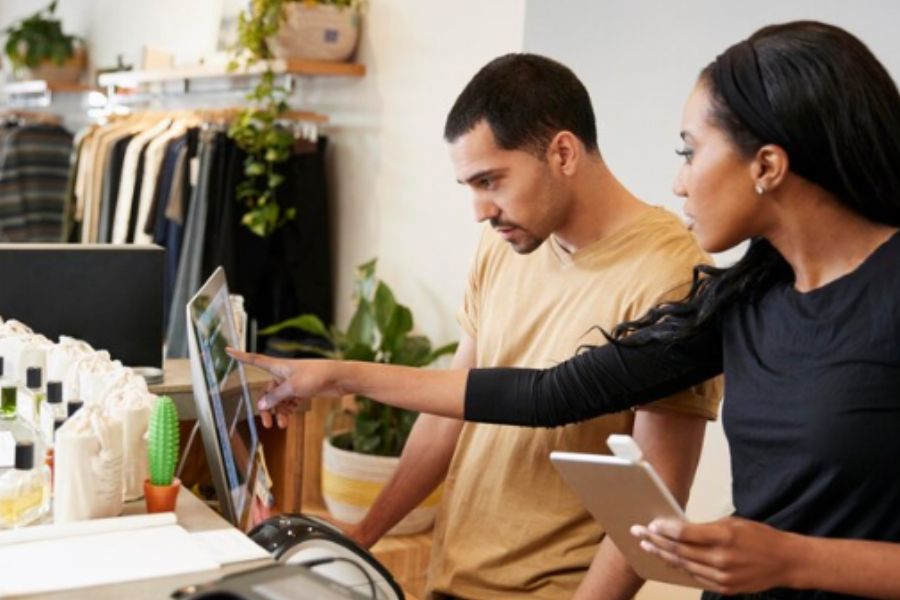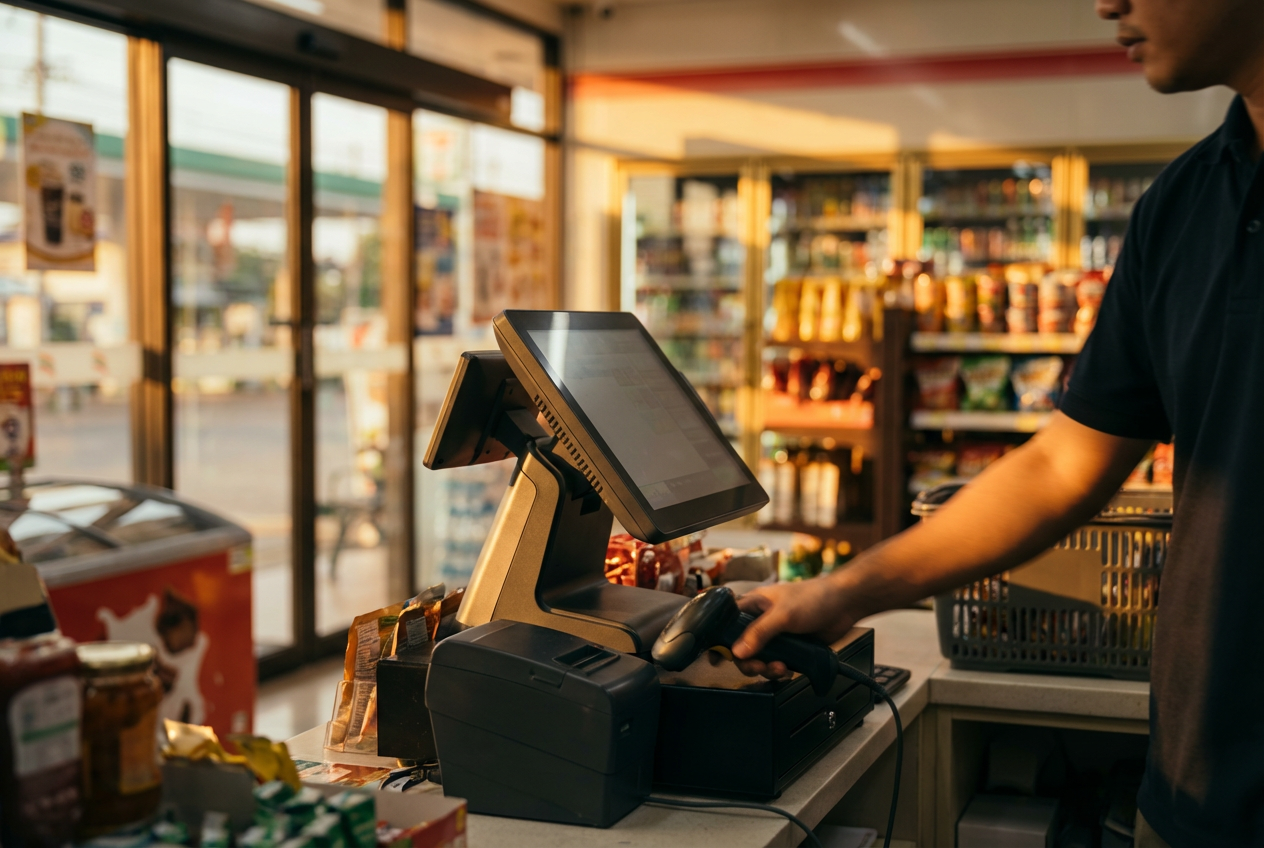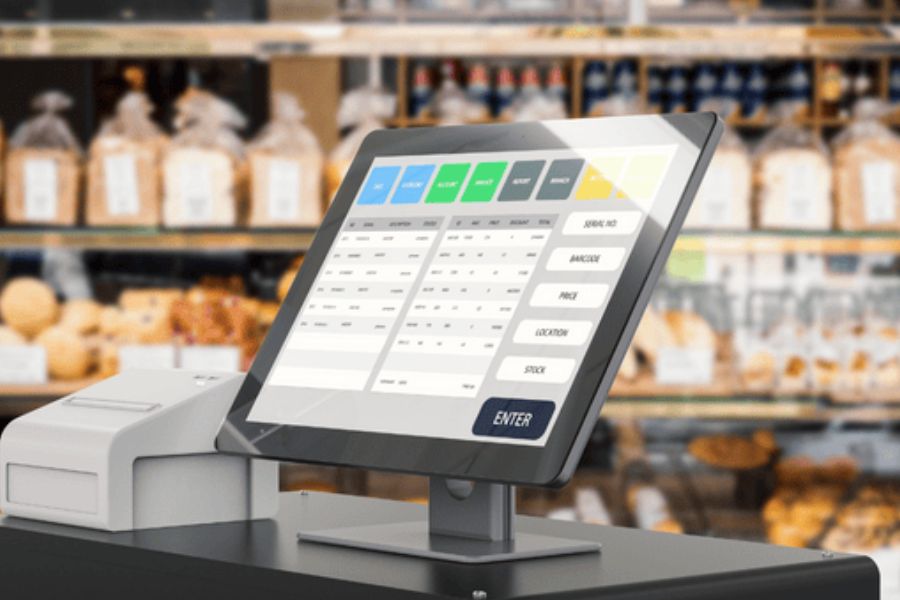Retail in Indonesia is shifting. Clothing boutiques, both independent and chain-operated, must align their systems with the purchasing habits of local shoppers, including how they buy, pay, and return items. A POS system for clothing boutique Indonesia has moved beyond basic sales; it now shapes inventory flow, customer engagement, and how data supports daily operations. For those selling fashion, the right system connects the storefront to the broader goals of the business.
This article helps boutique owners in Indonesia make informed decisions when choosing a POS system, offering expert advice from ConnectPOS. It outlines key considerations, including local market dynamics, essential features, integration with e-commerce, regulatory requirements, and hands-on usability.
Highlights:
- Choose a POS system that supports QRIS payments, OVO/GoPay/ShopeePay, Bahasa Indonesia interfaces, and compliance with local tax rules like e-Faktur.
- A good system should manage product variants (size, color, material), support real-time inventory sync, and allow detailed customer profiles for personalized service.
- Look for POS platforms like ConnectPOS that integrate with ecommerce (Shopee, Tokopedia, Shopify), support omnichannel selling, and offer flexibility for future growth.
Understanding Your Boutique Market In Indonesia
Indonesia, with more than 270 million people and a rising middle class, presents strong potential for boutique fashion businesses. The country’s textile market stood at USD 21.7 billion in 2023 and is expected to reach USD 28.57 billion by 2031, reflecting consistent growth in production and consumption of apparel-related goods.

Source:https://www.verifiedmarketresearch.com/product/indonesia-textile-industry/
In 2025, the Indonesian apparel market is forecasted to generate around US$23.61 billion in revenue. The sector is projected to grow at an annual rate of 3.76% through 2029. Women’s apparel leads the market, expected to reach US$11.16 billion in 2025, indicating strong demand for curated, style-conscious products, an area where boutique brands often perform well.
Well-known international labels such as Alo, Carhartt, and Sandro have increased their presence in Indonesia, tapping into a consumer base that values fashion with distinction. These brands have garnered attention among affluent younger buyers seeking quality and identity-driven pieces.
Luxury malls across Indonesia are expanding and gaining prominence as key spaces for boutique and global names. Stores from brands like Le Labo, Sandro, Carhartt, and Alo are now found in high-profile locations such as Plaza Indonesia and Plaza Senayan. These developments reflect strong demand for physical retail spaces that support brand storytelling and curated presentation.
This market environment requires retailers to work with a POS system for clothing boutique Indonesia that adapt quickly to shifts in demand. A retail-specific solution supports boutique operations by enabling real-time inventory management, synchronized pricing across channels, and reporting based on customer purchase behavior.
How To Choose The Right POS System For Clothing Boutique Indonesia?
Assess Your Business Needs
Start by looking at your store’s size, daily operations, and customer traffic. A small boutique on a side street in Bandung will have different requirements than a flagship outlet in Jakarta. Consider how many items you sell per day, how complex your inventory is, and what kind of payment methods your customers prefer. This groundwork shapes your choice of system, helping you focus on options that actually fit how you work.
If your team needs to move freely or serve customers throughout the store, mobile POS hardware can support that setup. On the other hand, if your inventory shifts by season or includes many color and size variations, your system should handle product catalogs that reflect that structure. Understanding your pace of sales, staff flow, and merchandising habits makes the search more accurate and relevant.
►►► Optimal solution set for businesses: Multi store POS, Next-gen POS, Inventory Management Software (MSI), Self Service, Automation, Backorders

Must-Have POS Features For Clothing Boutiques
Boutiques often deal with clothing lines that come in many variants—different sizes, shades, and styles. A POS system for clothing boutique Indonesia that can manage those combinations with clarity makes inventory less of a guessing game. Systems should allow you to view what’s in stock at a glance, alert you when items are nearly out, and organize categories without confusion. Being able to trace what sells and what sits helps store owners plan better.
Beyond stock, there’s also value in seeing how customers interact with your business. Tools that track purchase history, allow notes on preferences, and connect to customer profiles can support more tailored service.
For stores focused on relationship building, this level of tracking helps staff remember faces, tastes, and past purchases—small touches that make a difference.
Local Requirements In Indonesia
Retail compliance in Indonesia carries its own standards. Some jurisdictions require tax-related reporting to be sent digitally or recorded in specific formats. Look for POS systems that allow receipts to include local tax numbers and VAT values. Language compatibility also plays a role, interfaces and receipts in Bahasa Indonesia keep operations smooth for both staff and shoppers.
Payments in Indonesia have shifted heavily toward QR codes and mobile wallets. A system that can read QRIS codes and handle payments from apps like OVO, GoPay, and ShopeePay keeps you aligned with what shoppers expect.
Most card payments are processed through domestic banks, so a POS system for clothing boutique Indonesia accepting BCA, Mandiri, and BNI cards will serve daily foot traffic better than one focused solely on international systems.
Budget And Pricing Structure
Clarity around pricing can prevent trouble later. Some POS providers advertise a low base rate but charge extra for software updates, customer support, or hardware compatibility. Before making a decision, calculate your annual expenses, including licenses, payment processing fees, and hardware costs, if applicable. This paints a more complete picture of the actual cost of doing business with that provider.
Retailers should also ask whether pricing adjusts based on store size or transaction volume. Subscription-based systems may scale gradually, while some providers tie pricing to sales thresholds.
Smaller boutiques may find value in fixed-cost software, while growing businesses might lean toward flexible contracts that match changing demand. Knowing how pricing aligns with growth helps keep the store financially balanced.
Compatibility And Integration
The right POS should work well with the rest of your tools. Clothing boutiques that sell online need data to flow between systems without manual re-entry. When your ecommerce orders, inventory, and customer records are all in sync, you avoid mismatches and missed sales. Connections to tools like Shopify POS, accounting software, or loyalty apps support day-to-day decisions.
If your team already uses certain platforms, it helps to check whether those are supported. This avoids disruptions and retraining. For those expanding their digital presence, future-proofing matters too. POS system for clothing boutique in Indonesia that connects to a wide network of tools allows you to adjust over time without switching systems entirely. This approach makes your digital setup more flexible and less locked in.
Try Before You Buy
Some systems look promising on paper but feel different during use. Running a trial on real store tasks reveals how well the software fits into your workflow. Focus on core actions: ringing up a sale, adding a return, checking stock levels, and onboarding a new product. These steps show how intuitive or frustrating the system might become over time.
Bring in your staff during the testing period. If they find the system confusing or slow, that can impact customer interactions. Check response times from support and see if there’s local assistance, especially in Bahasa Indonesia. A POS system for a clothing boutique Indonesia looking sleek but lacking reliable help can cost more in delays than it saves in features. Make the decision based on how it fits into your daily routine.
Why ConnectPOS Is A Strong Option For Indonesian Clothing Boutiques
Indonesian clothing boutiques aiming for omnichannel growth need a POS system for clothing boutique Indonesia that can handle modern retail demands. ConnectPOS supports fashion-specific workflows, real-time inventory updates, and local customer engagement across online and physical stores. Its setup works well for both Jakarta independents and expanding regional chains.
More than a sales tool, ConnectPOS runs as the central retail system. Its headless structure, modular build, and open API give boutiques the space to adjust to changes in customer behavior, product trends, and sales channels. For those building stable operations with room for growth, it provides the needed framework.
- Built for Fashion Logic: ConnectPOS supports apparel-specific needs, allowing product variants based on size, color, brand, or material. Retailers can manage bundles, apply custom SKUs, and track grouped products, simplifying merchandising and restocking.
- Real-Time Inventory Accuracy: Inventory levels sync instantly across locations and channels, minimizing errors. Stocktakes, transfers, and alerts for overstock or out-of-stock items are all part of the core system.
- Deep Customer Interaction Tools: Purchase history, wishlists, and browsing behavior can be viewed directly through the POS interface, helping staff recommend complementary products or suggest full outfit sets. Clienteling tools strengthen brand loyalty through personalization.
- Flexible Payments for Local Preferences: The platform supports diverse payment options, including card terminals, digital wallets, store credits, split payments, and Buy Online, Pick Up In Store (BOPIS). This suits Indonesia’s mobile-first and cashless retail trends.
- Omnichannel Execution: Whether selling on Shopee, Tokopedia, in-store, or via brand-owned ecommerce sites, ConnectPOS provides centralized management of orders, inventory, and customer profiles, without system silos.
- Self-Checkout for In-Store Convenience: Integrated self-service functionality empowers customers to scan and pay independently. This increases in-store throughput and addresses rising expectations for frictionless shopping in urban boutiques.
- Enterprise-Ready Integration Ecosystem: ConnectPOS links to ecommerce platforms (e.g., Shopify, Magento POS), ERP systems, accounting tools, CRM platforms, payment gateways, and retail hardware. Indonesian boutiques operating across platforms benefit from centralized control.
- Support for Growth and Customization: The POS can be tailored to specific store workflows, including custom product attributes, localized checkout flows, and promotional logic. Brands can expand without hitting structural limits or re-platforming.
FAQs: POS System for Clothing Boutique Indonesia
What POS features matter most for fashion retailers in Indonesia?
Look for systems that easily handle size, color, and material variants. Real-time stock updates across locations, barcode support, sales reporting, and customer data tracking are also key in retail environments that rely on high inventory turnover and trend responsiveness.
Why does local compliance matter in a POS system for a clothing boutique in Indonesia?
Boutiques operating in Indonesia must comply with local tax regulations, including e-Faktur integration and adherence to fiscal hardware requirements. A system that aligns with these will avoid penalties and reduce complexity during audits.
Is a cloud-based POS system better for boutiques in Indonesia?
Cloud setups provide store owners with access to real-time performance data, remote access to sales dashboards, and seamless software updates. This suits mobile-first retail environments and supports expansion across malls and online channels.
Conclusion
A retail system should match how your store runs. For clothing boutiques in Indonesia, that means choosing a POS system for clothing boutique Indonesia that support product complexity, handles in-store and online interactions, and stays in step with local requirements. The right POS helps make decisions clearer, staff more organized, and expansion more practical.
ConnectPOS aligns well with these demands. Its real-time data control, custom flows, and integrations make it a practical choice for fashion retailers across Indonesia. For boutiques seeking to grow while maintaining clear and responsive operations, ConnectPOS is worth a closer look. Contact us now!
►►► Optimal solution set for businesses: Shopify POS, Magento POS, BigCommerce POS, WooCommerce POS, NetSuite POS, E-Commerce POS




